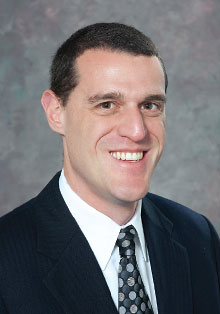Got Grit? AAPL Presidential Session to Address Wellness for Psychiatrists
Abstract
An American Academy of Psychiatry and the Law (AAPL) presidential panel will discuss how psychiatrists can improve their resiliency and address the challenges that they are more likely to face than physicians in other specialties.
Chronic stress and exposure to traumatic situations contribute to depression and burnout among physicians and medical trainees in all specialties and subspecialties, but some challenges are more common in psychiatry.

Knowing their own strengths and weaknesses can help psychiatrists recognize factors that could make them prone to burnout, says William J. Newman, M.D.
“Experientially, it is apparent from conversations with psychiatrists that we are as a group more prone to experience patient boundary violations, threatening behaviors, and vicarious trauma than physicians in other specialties,” said William J. Newman, M.D., interim chair of psychiatry at the Saint Louis University School of Medicine. Newman will chair the American Academy of Psychiatry and the Law presidential panel titled “Navigating Potential Pitfalls to Wellness for Psychiatrists,” a lively session in which experts will discuss these challenges and offer strategies for addressing them.
Newman will open the session with an overview of potential pitfalls to wellness for psychiatrists, including stalking by patients. He will discuss resilience and grit and ways to foster both traits.
“Those traits are valuable for the long trek required to graduate medical school and complete postgraduate training,” Newman told Psychiatric News. “Most important is for individuals to broaden their understanding of their own strengths and weaknesses to help recognize factors that could make them more prone to burnout.”
In the second presentation, Christopher Thompson, M.D., medical director for the Juvenile Justice Mental Health Program of the Los Angeles County Department of Mental Health and an associate clinical professor of psychiatry at the David Geffen School of Medicine at the University of California, Los Angeles, will describe the development of the personality traits commonly referred to as “Type A traits.” He will highlight positives and negatives of Type A traits and how they affect psychiatric practice.
Next, Charles L. Scott, M.D., chief of the Division of Psychiatry and the Law, forensic psychiatry training director, and a professor of clinical psychiatry at the University of California Davis Medical Center, will discuss the personal and professional impact of being named in a malpractice lawsuit and highlight cases involving suicides.
In the fourth presentation, John Bradford, M.B.Ch.B., D.P.M., an emeritus professor in the Department of Psychiatry at the University of Ottawa and a professor in the Department of Psychiatry and Behavioural Neurosciences at McMaster University in Hamilton, Ontario, Canada, will share his personal experiences with vicarious trauma. Bradford will recommend ways to identify and mitigate the long-term risks of vicarious trauma.
Brianne Newman, M.D., an associate professor and program director of the Adult Psychiatry Training Program in the Department of Psychiatry and Behavioral Neuroscience at Saint Louis University School of Medicine, will round out the session by providing information on specific mechanisms for maintaining wellness, with an emphasis on their benefits for psychiatrists. She will recommend practices for psychiatrists at different phases of their careers. ■
“Navigating Potential Pitfalls to Wellness for Psychiatrists” will be held Sunday, May 2, from 4 p.m. to 5:30 p.m.



